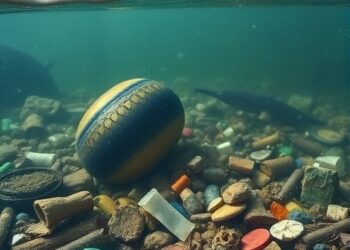As the Paris Olympics captured the world’s attention this month, it proved apparent that winning medals often hinged on the success of teamwork.
As the Paris Olympics captured the world’s attention this month, it proved apparent that winning medals often hinged on the success of teamwork.
While such an approach clearly works in sports, new research suggests teamwork is not always the desired method … especially for young scientists trying to find an academic job.
“We found that if your team size in your discipline is large, your prospects for an academic career go down,” said Donna Ginther, the Roy A. Roberts Distinguished Professor of Economics at the University of Kansas.
Her paper titled “The rise of teamwork and career prospects in academic science” reveals individuals who finish their doctorate in situations where the average team in their field is larger have worse career options. The results demonstrate that academic science has not adjusted its reward structure (which is largely individual) in response to team science. It appears in Nature Biotechnology.
“The number of authors on papers in our discipline has changed,” she said. “In econ, when I graduated, there were single-author papers. Now it’s often three to five — so it’s essentially doubled. In science fields in particular, it’s grown a lot. And when the National Institutes of Health budget doubled, papers increased by about one author.”
Co-written with Mabel Andalón, Catherine de Fontenay and Kwanghui Lim of the University of Melbourne, this research combined data on career outcomes from the Survey of Doctorate Recipients with publication data that measured research size from ISI Web of Science. It also incorporated a regression on career outcomes at the individual level to control for any changes in the characteristics of young scientists (such as whether the scientists obtained their doctorate from a top-ranked school).
“The questions we asked were if the average team size gets larger, what does it affect? Then how does it affect your career?” Ginther said.
“My co-author Catherine de Fontenay and Kwanghui Lim developed a theoretical model where if you have large teams, it’s unclear who contributed what to the paper. That makes the signal of your scientific ability noisy. But if there are just two authors, it’s pretty clear you both did a lot of work. Then the signal of your contribution is clear.”
As a result, it’s hard to discern and give individuals credit for their contribution … and that affects their next job and whether they get research funding.
“All of the phenomena we’re seeing about the length of time it takes from the time you get your Ph.D., until you get your first academic job, until you get your first R01 — that can be explained by this growth in team size,” she said.
Ginther recently spent six months on sabbatical in Australia, which led to a research partnership with her University of Melbourne colleagues.
“I have a whole body of work on early career scientists,” she said. “For this paper, I really liked the model we used and the intuition behind the result. The world is big and complex, and teams are an important part of it. You can’t be this kind of solitary intellectual. Teamwork is something you must be able to navigate.”
Now in her 22nd year at KU, Ginther specializes in labor economics. She is also the director of the Institute for Policy & Social Research, an interdisciplinary campus center for faculty and students doing funded work in the social and behavioral sciences.
The economist believes her findings can be applied to other professions beyond academia.
“I’d be very curious to look at the military because you always operate in teams. How does the size of your team or the composition of your team affect your career?” she said.
Ultimately, Ginther emphasizes the key takeaway of this latest research is how money is correlated with team size.
“To the extent we can make more groups of scientists that are smaller, this could lead to a policy change that is supported by our work,” she said. “Having more smaller teams may be better than mega teams, both in terms of scientific discovery and career outcomes.”
Journal
Nature Biotechnology
Method of Research
Meta-analysis
Subject of Research
People
Article Title
The rise of teamwork and career prospects in academic science
Article Publication Date
14-Aug-2024




